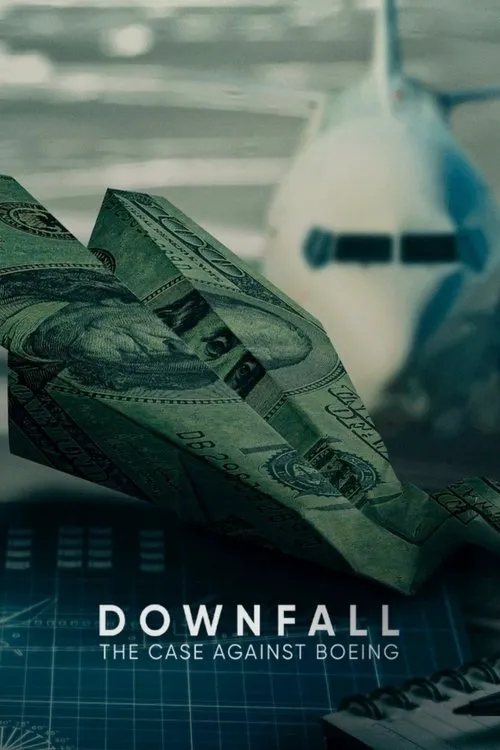Downfall: The Case Against Boeing

Plot
In 2019, two devastating commercial airliner crashes shocked the world, claiming the lives of nearly 600 people. The Lion Air JT 610 and the Ethiopian Airlines Flight 302 disasters were eerily similar, with both Boeing 737 MAX aircraft plummeting to the ground shortly after takeoff, resulting in catastrophic consequences for those on board and the families of the victims. The subsequent investigations into these tragedies raised crucial questions about the priorities of Boeing, the world's largest and most revered aerospace manufacturer. As investigators delved into the circumstances surrounding these crashes, they began to unravel a complex web of deceit, negligence, and a seeming disregard for safety at the very core of Boeing's corporate culture. In the Netflix documentary 'Downfall: The Case Against Boeing,' award-winning filmmakers James Longley and Margaret Brown expose the dark underbelly of a company once revered for its safety record and commitment to innovation. The film masterfully weaves together an intricate narrative that sheds light on the catastrophic chain of events leading up to these tragedies. The documentary begins by tracing the lineage of the Boeing 737 MAX, a commercial airliner that boasted cutting-edge technology and unprecedented fuel efficiency. However, beneath the surface of this sleek and modern design lay a complex system known as MCAS (Maneuvering Characteristics Augmentation System), a state-of-the-art computer system designed to prevent the plane from stalling. The MCAS system was supposed to be a safety net, designed to intervene when the pilots failed to do so by making critical adjustments to the plane's flight control surfaces. However, in its zeal to meet the demands of an increasingly competitive market, Boeing rushed this crucial system to market, cutting corners and omitting critical testing that could have identified the potential pitfalls of MCAS. Boeing's haste in releasing the 737 MAX, a heavily modified derivative of an existing aircraft, was driven by the company's need to compete with Airbus's similarly innovative A320neo. The stakes were high, with millions of dollars at stake in every sale. Investors, shareholders, and top executives at Boeing were all keenly aware of the importance of meeting quarterly targets, a metric that directly impacted their bonuses and stock options. The documentary expertly captures the relentless pressure to deliver profits, an imperative that seems to have clouded Boeing's judgment at every turn. As investigators examine the circumstances surrounding the crashes, it becomes clear that pilots on both flights were unaware of the MCAS system's existence, never mind its critical role in flight control. A critical software update issued by Boeing had omitted crucial instructions to pilots on how to disable MCAS, leaving them woefully unprepared to handle the catastrophic failures that would ultimately lead to the tragedies. This systemic failure, combined with Boeing's deliberate concealment of information about the MCAS system, raises fundamental questions about the safety standards at the company. One of the most damning revelations in the documentary concerns a key communication between Boeing and regulatory agencies such as the Federal Aviation Administration (FAA). In a pivotal exchange, a Boeing engineer revealed that the company had deliberately used a misleading term, "angle of attack," to obscure the complexities of the MCAS system from regulators and pilots. The engineer's comments, caught in a recording of the conversation, provide irrefutable evidence of a culture at Boeing that prioritized profit over safety. The fallout of these incidents has been severe and far-reaching, with Boeing facing numerous lawsuits and regulatory actions from governments worldwide. The reputational damage has been substantial, with investors and consumers alike questioning the very foundations of the company's value proposition. 'Downfall: The Case Against Boeing' is a powerful exposé of a culture in crisis, where profits and shareholder value took precedence over human life. Through meticulous research and a commitment to telling the stories of the victims and their families, Longley and Brown expose the darkest corners of corporate accountability, a world where greed seems to have clouded even the most basic moral responsibilities. This gripping documentary serves as a stark reminder of the true price of unchecked power and the devastating consequences of prioritizing profits over safety.
Reviews
Recommendations




